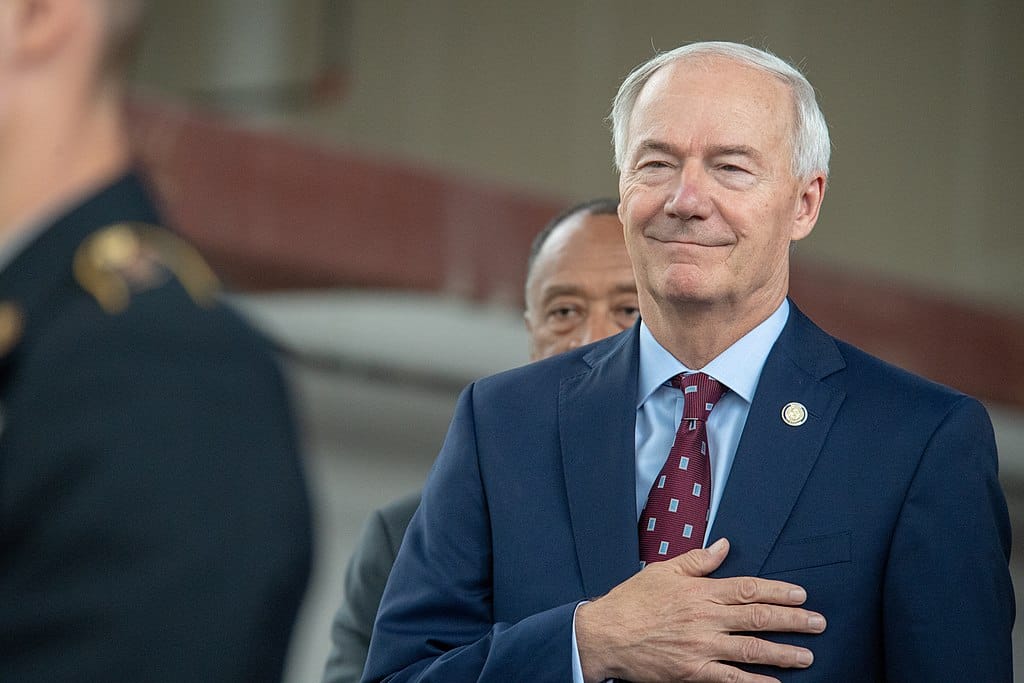Eric Schmidt Worries About 5G, Rural Progress Tool, Arkansas Expands Broadband Deployment
February 10, 2021 – The United States and its allies are already far behind China in investing in 5G mobile telecommunications networks, said the former chief executive of Google, who is worried the C-Band spectrum proceeds won’t go to 5G deployment. Though it raised a record-breaking $81 billion, a
Derek Shumway

February 10, 2021 – The United States and its allies are already far behind China in investing in 5G mobile telecommunications networks, said the former chief executive of Google, who is worried the C-Band spectrum proceeds won’t go to 5G deployment.
Though it raised a record-breaking $81 billion, and is being celebrated as a win for 5G, Schmidt said he is not proud of the FCC’s C-band spectrum auction held last month and calls it a “digital setback that America and its allies can ill-afford.”
The concern comes from the lack of “meaningful requirements” needed to ensure mobile telecommunications companies will actually spend money on 5G network development. Schmidt downplayed the significance of the money raised by the auction, saying that $81 billion was “merely a trifle on the government scale, equivalent to less than a month of US debt issuance, and the money is unlikely to be spent on the 5G network the country needs.”
The auction’s result, Schmidt said, will be that Americans will face higher prices and weaker digital services, which was seen in the European 3G auctions early 2000s where telecoms paid more than they should’ve. Schmidt did praise the U.S. for its world-leading technology companies today as they positioned their software to succeed by building core components of high-speed data infrastructure for 4G LTE.
But it’s a different story when it comes to 5G. The U.S. has apparently focused more on marketing 5G rather than actually creating change in data speeds, said Schmidt. The next generation of technology giants — and the products and services they build — are not going to be European or American but Chinese, he said. Schmidt said future U.S. spectrum auctions must include an insistence on developing infrastructure. Future auctions must require high standards and penalties for underperformance, he added.
New progress mapping for rural fund
A new resource has been released by BroadbandNow that helps visualize and check the progress of the Rural Digital Opportunity Fund.
The new resource includes an interactive map that highlights in red every census block in the U.S. without a terrestrial broadband provider. It also lists all RDOF auction winners, with emphasis on the top 10 winners, and lists a chronological timeline of significant events since the RDOF began. It also summarizes goals and challenges.
The RDOF is a Federal Communications Commission program will inject $20.4 billion over 10 years in two phases in the building of rural broadband networks.
In the first phase, up to $16 billion will be made for providers, and will include census blocks that are currently unserved by an existing broadband provider, or is currently underway. The second phase, consisting of about $4.4 billion, will connect any remaining areas not covered in the first phase.
The RDOF seeks to provide broadband speeds of 35 Megabits per second (Mbps) download and upload speeds of up to 4 Mbps. It also promotes future-proofing of technologies and services by placing priority on networks with faster speeds and lower latency, which determines the speed at which technologies communicate with each other.
The FCC has said by doing this, robust technologies like fiber will “ensure that those benefiting from these networks will be able to use tomorrow’s internet applications as well as today’s.”
The FCC still claims its processes are “technologically neutral,” which offers multiple levels for service providers to bid on.
Trying to determine exact standards and eligibility requirements is an ongoing challenge when specifics and exceptions are brought up, but the FCC “plans to make funds available for providers to build service out in census blocks where no provider ‘is offering, or has committed to offering, either via the CAF II auction, the USDA ReConnect program, or state-specific programs, service of at least 25/3 Mbps.’”
Another concern about making sure funds are allocated in the best possible manner is when poor broadband maps and records are rampant. Even if just one address within a block is truly wired to service , providers can mark the entire census block as “serviced,” which can cause massive over-reporting of communities with service.
Arkansas passes law expanding government broadband deployment powers
The Arkansas General Assembly has unanimously voted to give government agencies new powers deploy and adopt advanced communications services and facilities across the State.
The Senate voted 35-0 and the House voted 94-0 to approve t he measure after the chambers discussed how residents who don’t have adequate broadband for video and wireless services also suffer from a lack of access to healthcare and other essential services.
The new law allows government entities to provide communications services or facilities to support a wide range of emergency management, law enforcement, education, and healthcare activities.
It adds flexibility to funding issues by granting government entities and its private partners the ability to apply for grants or loans that will help extend service to unserved areas across the State. Options to provide video, voice, and data services will expand as government agencies will be allowed multiple new ways to provide them.
It will be funded by issuing general obligation bonds and levying special taxes to build and deploy needed wireless services. Due diligence in accordance with industry standards will equally be required when funding and costs are determined.
Public hearings and time for public notices have been built in as well to allow open feedback and transparency.
The emergency legislation, SB74, enjoyed strong support and sped through the legislature and the Governor’s office. Five Republican sponsors introduced it – State Sens. Ricky Hill, Breanne Davis, and Missy Irvin, and Reps. Brian Evans and DeAnn Vaught. Republican Gov. Asa Hutchinson signed the bill into law as Act 67 on February 4, 2021.









Member discussion